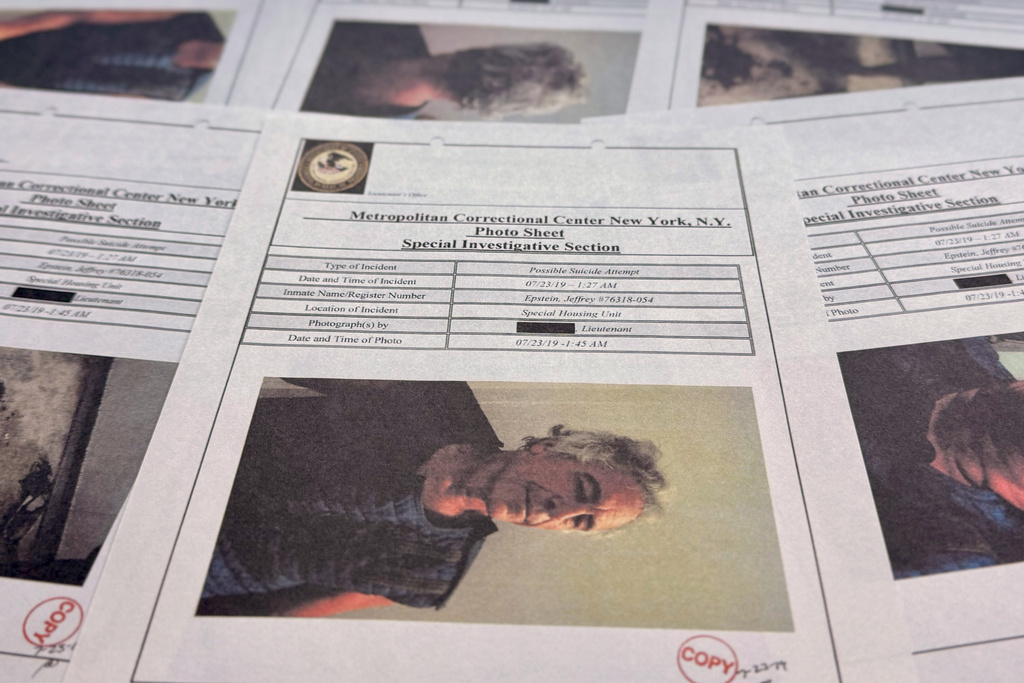Michigan Democratic Gov. Gretchen Whitmer — whose name frequently appears on slates of potential 2028 presidential competitors — quietly met with President Donald Trump at the White House on Tuesday, Scripps News has learned. It was at least her third such meeting with the president since the start of his second term.
The two discussed the impact of Trump’s tariffs on Michigan, particularly its auto industry, and how changes to Medicaid under the Trump-backed One Big Beautiful Bill Act (OBBBA) could affect the state’s economy.
“Today, I went to the White House to meet with President Trump,” Whitmer told Scripps News in a statement. “I told him and his team about the impact tariffs are having on Michigan’s economy, especially our auto industry, the harm Michigan will face due to changes in the Medicaid program, and ongoing recovery efforts following the ice storm in Northern Michigan this year.”
Asked about the conversation, a White House official said only that President Trump “keeps his finger on the pulse of Michigan considering he won the state BIG. That should come as no surprise.”
A source familiar with the meeting said Whitmer worked to make the “negative impact of current tariffs clear to the president” and highlighted how vulnerable Michigan’s economy is to tariffs on auto imports from Canada and Mexico. Whitmer also spoke about possible areas for increases in domestic manufacturing, specifically highlighting Flint and Genesee County — the home of General Motors — as areas ripe for new investments.
On Medicaid, Whitmer raised concerns about how the OBBBA will impact Michigan’s Insurance Provider Assessment (IPA), one of the state’s taxes that partially funds insurance coverage for the roughly 2.6 million Michiganders on Medicaid. While most of the Medicaid cuts included in Trump’s bill won’t take effect until later this decade, the IPA changes — brought about by a proposed new rule from the Centers for Medicare and Medicaid (CMS) — could take effect more quickly.
The IPA has a total statewide impact of roughly $2.7 billion, a source noted, and the changes could imperil coverage for one million children, seniors in nursing homes, people with disabilities and rural hospitals.
Whitmer, in her meeting, specifically asked President Trump to allow for a three-year transition period once the new policy takes effect, instead of the shorter transition CMS proposed, and also requested “tighter collaboration” with CMS to “establish a framework that ensures provider assessments meet current policy,” a source said.
The White House would not comment on Whitmer’s specific requests for Medicaid changes.
Whitmer's meeting, meanwhile, comes as elected Democrats nationwide continue to spar in public and private about their approach to President Trump’s second term, and whether to attack him head-on, as many in the Democratic base want, or try to work with him on areas of agreement.
As Whitmer was meeting with President Trump, several of her potential 2028 competitors were hosting Democratic state legislators, who on Monday fled the state of Texas to try to prevent the Republican majority from redrawing Congressional districts for a significant GOP advantage.
"[President] Donald Trump, Gov. [Greg] Abbott, Texas Republicans, well they know that they're headed toward a loss of the Congress in 2026," Illinois Gov. JB Pritzker said during a press conference alongside some of the Texas Democrats on Tuesday. "They're afraid, and they should be."
Some Democrats in Congress have not been shy to publicly criticize their party's approach to navigating President Trump's second term.
Last month, Sen. Cory Booker, D-N.J., sparred with colleagues Sen. Amy Klobuchar, D-Minn., and Sen. Catherine Cortez Masto, D-Nev., on the Senate floor after Booker objected to a package of seven law enforcement-related measures. Booker argued that Democrats were not doing enough to challenge the Trump administration's decisions on how the funding would be allocated, adding that the process was heavily politicized.
Ultimately, only two bills in the package passed the Senate by unanimous consent.
Whitmer, meanwhile, has taken a much softer approach.
“I’ve always said that I’ll work with anyone to get things done for Michigan,” she told Scripps News on Tuesday. “That’s why I’ve continued to go to Washington, D.C. to make sure that Michiganders are front and center when critical decisions are being made.”
“I will always do whatever I can to make life a little easier for Michiganders and strengthen our economy,” she added. “We should do everything in our power to lower costs and grow more good-paying jobs in Michigan. I appreciate the president’s time and attention to the matters we discussed.”










